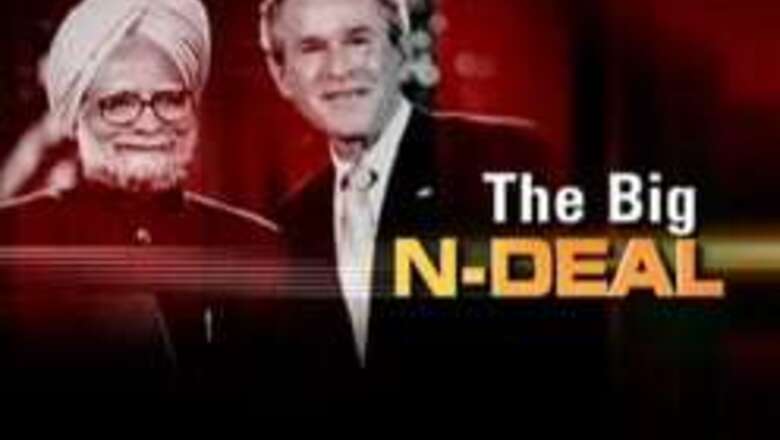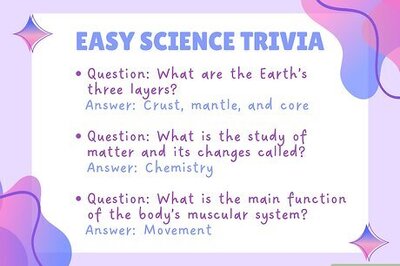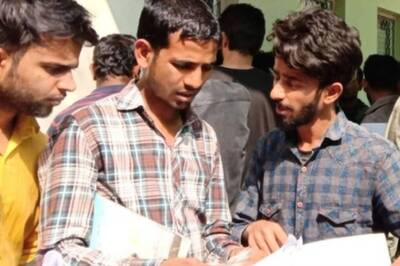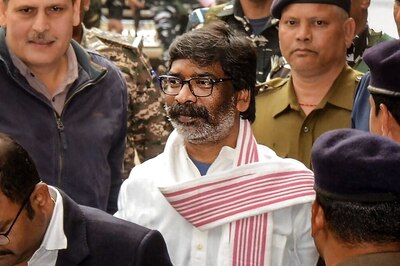
views
Vienna: The United States came out with a "changed draft" on Friday night to find the elusive consensus among the 45-members of the Nuclear Suppliers Group on a "clean waiver" that will allow commerce between India and the powerful cartel that controls the global supply of nuclear fuel, equipment and technology.
Negotiations between the three parties, the US, the NSG members and India, went on till late night as serious attempts were on to reach an agreement on the new wordings in the draft that will be acceptable to all.
Austria, Ireland and New Zealand, were the three countries in the 45-member group that prevented a consensus from emerging in the NSG on an India-specific waiver. They insisted that provisions be brought in the draft that will ensure that all commercial dealing with India be stopped the moment it conducts another nuclear test.
External Affairs Minister Pranab Mukherjee issued a statement re-affirming India's commitment to a "voluntary moratorium" on further tests. But the three members of the NSG remained sceptical and insisted that the commitment should be legal to make it more binding.
The on-going negotiations are aimed at making the changed language in the draft acceptable to the NSG members and India.
India's ambitions of a waiver from the Nuclear Suppliers Group,, ending 34 years of nuclear isolation, has gone from hope to despair back to hope and back again.
The number of countries opposing India has reduced but until the last two holdouts, Austria and Ireland, don't agree to the waiver, it cannot be cleared.
No arms race, says India
India pledged on Friday not to engage in a new arms race as talks continued in Vienna.
In New Delhi, External Affairs Minister Pranab Mukherjee said his country remained committed to a voluntary moratorium on nuclear testing. He said India would not touch off a new arms race or share sensitive nuclear technology with others.
''We do not subscribe to any arms race, including a nuclear arms race,'' Mukherjee said. ''We have always tempered the exercise of our strategic autonomy with a sense of global responsibility. We affirm our policy of no-first-use of nuclear weapons.''
Acting US Undersecretary of State John Rood, who specializes in arms control issues, told reporters that Washington remained ''confident and optimistic'' that it would hammer out a compromise.
Rood said there was ''positive momentum,'' but the talks dragged into Friday evening with no sign of a breakthrough.
The talks were convened by the 45-nation Nuclear Suppliers Group, which governs the legal trade in nuclear components and technology. Thursday's session was inconclusive.
The Bush administration has been racing to get approval from the nuclear group and the US Congress before lawmakers recess for the rest of the year to devote time to their re-election campaigns.
US officials contend that selling peaceful nuclear technology to India would bring the country's atomic program under closer scrutiny and boost _ not undermine _ international nonproliferation efforts.
Some delegates signaled that the talks were close to reaching a compromise agreement, though they offered no details.
But opposing countries, including Austria, Ireland, New Zealand, Norway and Switzerland, have expressed fears that a reversal of more than three decades of US policy toward India could set a dangerous precedent in the struggle to discourage other nations from pursuing weapons of mass destruction.
Daryl Kimball, executive director of the Washington-based Arms Control Association, played down India's latest pledge to refrain from further nuclear testing.
''No ... Indian national statement on its nonproliferation commitments can substitute for clear and unambiguous restrictions and conditions for NSG trade with India,'' Kimball said.
China also urged caution earlier this week, saying the peaceful use of nuclear energy must be balanced against concerns about possible weapons development.
Adding intrigue to the Vienna talks was a secret Bush administration letter released this week by congressman Howard Berman, which said Washington has the right to immediately halt nuclear trade with India if it were to conduct an atomic test blast.
(With inputs from IANS, PTI and The Associated Press)



















Comments
0 comment